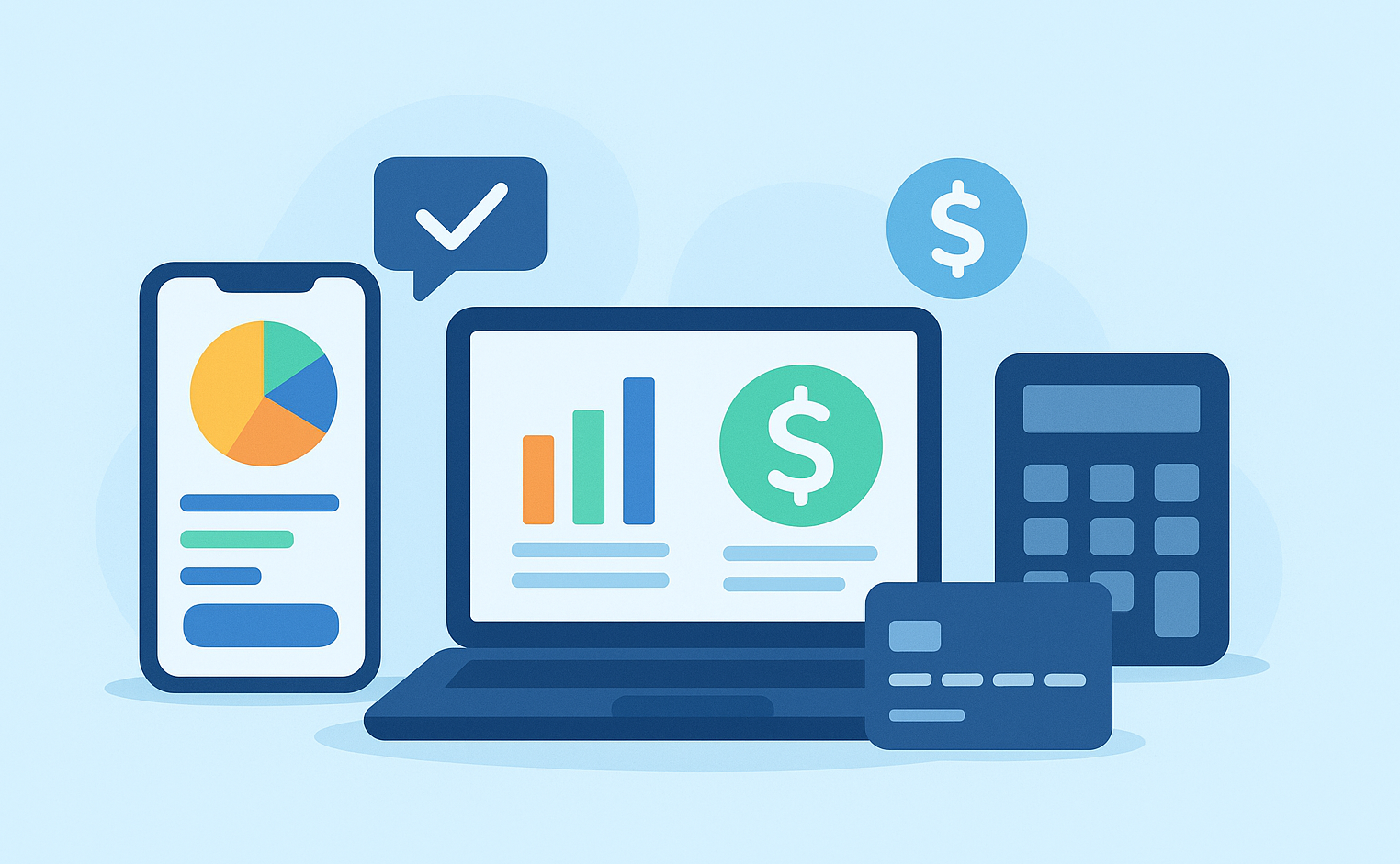In today’s world, managing your money no longer means flipping through a checkbook or holding onto piles of receipts. The digital age has given us powerful tools that fit right in our pockets. These digital tools help us track expenses, manage debt, set savings goals, and monitor our overall financial health. Whether you’re a seasoned budgeter or just starting to get a handle on your finances, there’s a digital solution that can help you take control.
Let’s explore some of the best budgeting apps, debt-tracking tools, and tips for choosing the right platform for your needs.
Budgeting Apps: Your Everyday Money Companion
Budgeting apps have revolutionized the way we monitor spending. Instead of manually adding up purchases at the end of the month, you can now get instant updates and visual reports of where your money is going.
Top Picks to Consider:
- Mint – One of the most popular free budgeting tools, Mint connects to your bank accounts and credit cards to give you real-time insights. It automatically categorizes expenses, sends bill reminders, and even offers credit score monitoring. Great for beginners.
- YNAB (You Need A Budget) – Perfect for serious budgeters who want to plan every dollar before it’s spent. YNAB has a philosophy that is proactive budgeting, helping you assign every dollar a purpose. It’s subscription-based, but many find the results worth the cost.
- EveryDollar – Developed by personal finance expert Dave Ramsey’s team, this app uses zero-based budgeting principles. The free version works well for manual entry, while the paid version allows account synchronization.
Tip: If you’re prone to overspending, look for apps that allow spending alerts and category limits so you can course-correct in real time.
Debt-Tracking Tools: Your Roadmap To Freedom
Paying down debt can feel overwhelming, but tracking your progress can be highly motivating. These tools make it easier to visualize the finish line:
Get Started With a Free Debt Analysis
We make it easy on mobile or desktop. FREE with no obligations.
- Undebt.it – A free, web-based tool that lets you create a custom debt payoff plan using the debt avalanche or debt snowball method. You can track your progress with graphs and get payoff date projections.
- Debt Payoff Planner – This mobile app helps you strategize your debt payments and see how different repayment methods affect your timeline.
- Tally – If you have credit card debt, Tally offers an automated payoff service (for qualified users) and helps you avoid late fees.
Tip: Reach out to a non-profit credit counseling agency to see if a Debt Management Program could help you pay off debt faster and save money in the long run by reducing interest rates!
How To Choose The Right Digital Platform
With so many apps and tools available, picking the right one depends on your goals, lifestyle, and comfort level with technology. Here are a few factors to consider:
- Your Goals:
- If your main focus is budgeting, look for apps with customizable categories and real-time updates.
- If your priority is debt payoff, choose a platform with strong repayment planning features.
- If you want all-in-one management, go for a comprehensive personal finance dashboard.
- Cost vs. Value:
- Many free apps are feature-rich, but some advanced features, like bank synchronizing or investment tracking, may require a paid plan.
- Consider whether the potential savings or debt payoff acceleration outweigh the subscription cost.
- Security:
- Look for bank-level encryption, two-factor authentication, and clear privacy policies.
- Check how your data is stored and whether it’s shared with third parties.
- Ease of Use:
- A sleek interface is nice, but it should also be intuitive. The easier it is to log in and update your progress, the more likely you are to stick with it.
Beyond Budgeting & Debt: Other Digital Tools to Explore
Digital finance tools don’t stop at budgeting and debt tracking. You may also want to explore:
- Savings Apps – Tools like Qapital and Digit automate savings by rounding up transactions or transferring small amounts to savings goals.
- Investment Platforms – Apps like Acorns and Betterment make investing accessible to beginners through micro-investing and robo-advising.
- Bill Negotiation Services – Tools like Truebill (now Rocket Money) can help negotiate lower bills and cancel unused subscriptions.
- Credit Monitoring Tools – Credit Karma and Experian offer free credit reports and alerts.
Final Thoughts
Digital finance and banking tools are not one-size-fits-all. The best platform is the one you’ll use consistently. Start small, experiment with one or two apps, and pay attention to how they fit into your daily routine. The right tool can help you gain clarity, reduce financial stress, and build a roadmap to a stronger financial future.
Remember: technology is a tool, not a magic fix. Pairing these apps with solid money habits like creating a realistic budget, making on-time payments, and reviewing your finances regularly is the key to lasting success!
